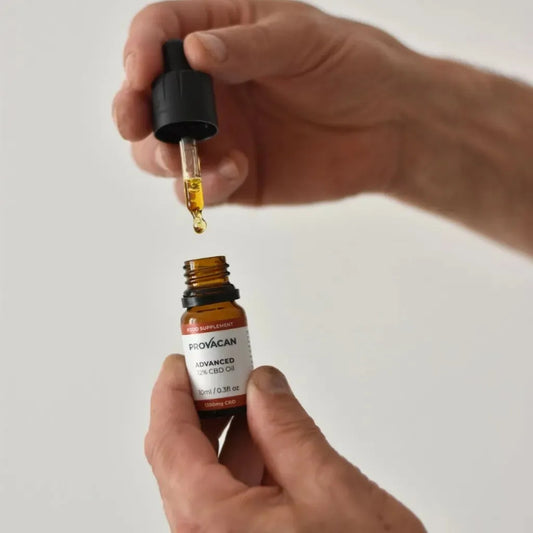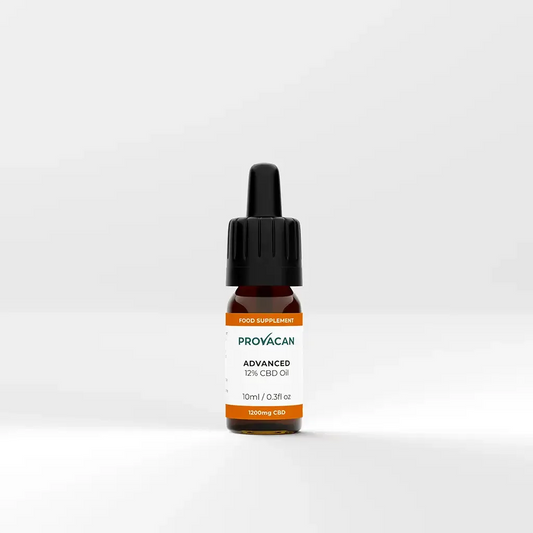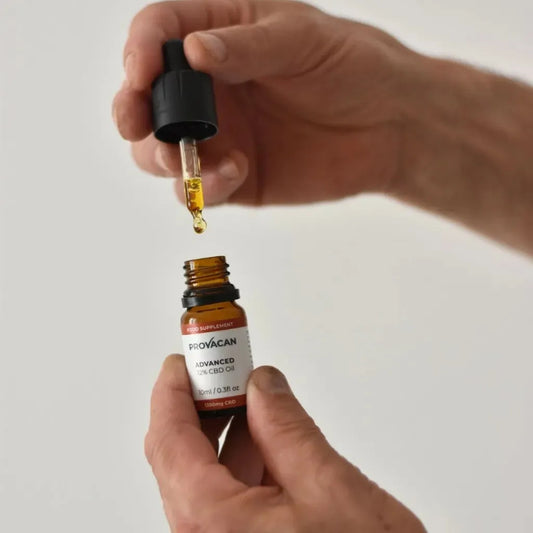Cannabidiol, commonly known as CBD, has gained significant attention in recent years for its potential therapeutic effects. From alleviating chronic pain to reducing anxiety, CBD has been hailed as a natural remedy with promising benefits. In this article, we will explore how CBD affects the mind and body, the potential health benefits it offers, as well as some precautions to keep in mind.
How Does CBD affect the mind and body?
CBD interacts with our body's endocannabinoid system, a complex network of receptors and neurotransmitters that help regulate various bodily functions. By modulating these receptors, CBD can influence the brain and body in different ways.
One of the most notable effects of CBD on the mind is its potential to promote relaxation and reduce anxiety. Studies have shown that CBD may interact with serotonin receptors, which play a role in mood regulation. This interaction may explain why some people experience a sense of calm and improved mood after consuming CBD.
Furthermore, CBD has also demonstrated anti-inflammatory properties. It may help reduce inflammation by interacting with various receptors in our body's immune system. This makes CBD a potential therapeutic option for individuals suffering from conditions related to inflammation, such as arthritis.
In addition to its effects on anxiety and inflammation, CBD has also been found to have potential neuroprotective properties. Research suggests that CBD may help protect brain cells from damage and promote their regeneration. This could have implications for the treatment of neurodegenerative diseases such as Alzheimer's and Parkinson's.
Moreover, CBD has shown promise in the field of pain management. It may help alleviate chronic pain by interacting with receptors involved in pain perception and modulation. This could offer a natural alternative to traditional pain medications, which often come with unwanted side effects.
Benefits of CBD
Health Benefits
The potential scientific benefits of CBD are wide-ranging. From promoting better sleep to providing relief from chronic pain, CBD offers a natural alternative to traditional medications.
CBD For Relief
CBD has been widely recognised for its potential analgesic properties. Whether it's muscle soreness after a workout or chronic pain due to certain medical conditions, CBD may offer relief. Its anti-inflammatory effects may help reduce discomfort, giving individuals a chance to live a more pain-free life.
CBD For Sleep
Many individuals struggle with sleep disorders, such as insomnia. CBD has shown promise in promoting better sleep by reducing anxiety and improving sleep quality. By calming the mind and reducing stress levels, CBD may help individuals achieve a more restful night's sleep.
CBD For Calm
A fast-paced and stressful lifestyle can take a toll on our mental well-being. CBD's potential to promote calmness and reduce anxiety has made it increasingly popular among individuals seeking natural ways to manage stress. By interacting with the brain's receptors, CBD can provide a sense of relaxation and tranquility.
CBD For Mood
In addition to promoting calmness, CBD may also have a positive impact on mood. By influencing serotonin receptors, CBD can potentially alleviate symptoms of depression and enhance overall mood. However, more research is needed in this area to fully understand CBD's effects on mood disorders.
CBD For Inflammation
Chronic inflammation is linked to various health conditions, including autoimmune diseases and cardiovascular issues. CBD's anti-inflammatory properties offer potential relief from inflammation-related symptoms. By interacting with receptors involved in the immune response, CBD may help reduce excessive inflammation and its negative effects on the body.
Furthermore, CBD has been found to have antioxidant properties, which can help protect the body against oxidative stress. Oxidative stress occurs when there is an imbalance between free radicals and antioxidants in the body, leading to cell damage and various health problems. By neutralizing free radicals, CBD may contribute to overall health and well-being.
Additionally, CBD has shown potential in supporting cardiovascular health. Studies have suggested that CBD may help reduce blood pressure and improve blood flow, which are important factors in maintaining a healthy heart. By promoting cardiovascular health, CBD may contribute to a lower risk of heart disease and other related conditions.
Moreover, CBD has been found to have neuroprotective properties, meaning it may help protect the brain from damage and degeneration. Research has shown that CBD can potentially reduce inflammation in the brain and promote the growth of new neurons. These effects may have implications for the treatment of neurodegenerative diseases such as Alzheimer's and Parkinson's.
Side Effects of CBD
While CBD is generally well-tolerated, it's essential to be aware of potential side effects. These can include drowsiness, dry mouth, and changes in appetite. It's crucial to start with a low dosage and gradually increase it to determine the optimal amount for your body. If you experience any adverse effects, it's advisable to consult with a healthcare professional.
Although the side effects of different types of CBD products are generally mild and temporary, it's important to understand them fully. One common side effect is drowsiness, which can occur especially when taking higher doses of CBD. This drowsiness can be beneficial for individuals who struggle with insomnia or have difficulty falling asleep. However, it's important to avoid activities that require alertness, such as driving or operating heavy machinery, if you experience this side effect.
In addition to drowsiness, dry mouth is another potential side effect of CBD. This occurs because CBD can temporarily reduce saliva production. While it may seem like a minor inconvenience, dry mouth can be uncomfortable and may lead to increased thirst. Staying hydrated and chewing sugar-free gum can help alleviate this side effect.
Changes in appetite are also worth noting when considering the potential side effects of CBD. Some individuals may experience an increase in appetite, commonly referred to as the "munchies." This can be beneficial for those who struggle with a lack of appetite due to certain medical conditions or treatments. However, it's important to be mindful of your food choices and maintain a balanced diet to ensure overall health and well-being.
You may also ask, is CBD oil addictive? CBD does not produce a 'high' as it doesn’t bind directly to the brain's primary cannabinoid receptors like THC does. This lack of psychoactivity means CBD can offer therapeutic benefits such as reducing anxiety and pain without the addictive 'high'. The World Health Organization has noted that CBD doesn't show signs of abuse or dependence potential, affirming its safety profile in terms of addiction risk.
As with any supplement or medication, it's crucial to start with a low dosage and gradually increase it to determine the optimal amount for your body. This allows you to gauge how your body reacts to CBD and minimize the risk of experiencing any adverse effects. If you do experience any concerning or persistent side effects, it's always advisable to consult with a healthcare professional who can provide personalized guidance and support.
How To Get The Most Out of CBD
If you're considering incorporating CBD into your wellness routine, here are some tips to help you understand CBD and maximise its benefits:
Start Slowly
Begin with a low dose and gradually increase it until you find the right amount for your body. This allows you to monitor how CBD affects you and adjust accordingly.
Understand CBD
Do your research and educate yourself about CBD oil facts to ensure you have a comprehensive understanding of its properties and potential benefits. This will help you make informed decisions regarding your CBD usage.
Get The Right Dosage
Depending on individual factors such as weight, metabolism, and the condition being treated, the optimal CBD dosage can vary. The benefits of CBD for older adults may also be of interest here. Consult with a healthcare professional to determine the right dosage for your specific needs.
Use A Professional Product
Ensure you're using high-quality CBD products from reputable manufacturers. This ensures that you are getting a reliable and safe product that meets proper quality standards, increasing the likely benefits of CBD oil you may experience..
Buy CBD
When purchasing CBD products, it's important to buy from trusted sources. Look for products that have undergone third-party testing to verify their purity and potency. This will help ensure that you are getting a product that is free from contaminants and accurately labeled.
Now, let's delve deeper into the potential benefits of CBD. One of the most well-known effects of CBD is its ability to promote relaxation and reduce anxiety. Many individuals have reported feeling a sense of calm and tranquility after incorporating CBD into their daily routine. This can be especially beneficial for those who struggle with stress or anxiety-related disorders.
In addition to its calming effects, CBD has also shown promise in alleviating chronic pain and inflammation. Research suggests that CBD may interact with receptors in the body's endocannabinoid system, which plays a role in regulating pain and inflammation. By targeting these receptors, CBD may help reduce pain and inflammation, providing relief for individuals with conditions such as arthritis or fibromyalgia.
Furthermore, CBD has been studied for its potential neuroprotective properties. Some research suggests that CBD may have antioxidant and anti-inflammatory effects, which could help protect the brain from damage caused by oxidative stress and inflammation. This has led to interest in CBD as a potential treatment for neurological disorders such as Alzheimer's disease or multiple sclerosis.
It's important to note that while CBD shows promise in these areas, more research is needed to fully understand its effects and potential benefits. As with any supplement or medication, it's important to consult with a healthcare professional and understand how CBD may affect you personally. By doing so, you can make informed decisions and experience the potential benefits that CBD has to offer.
























